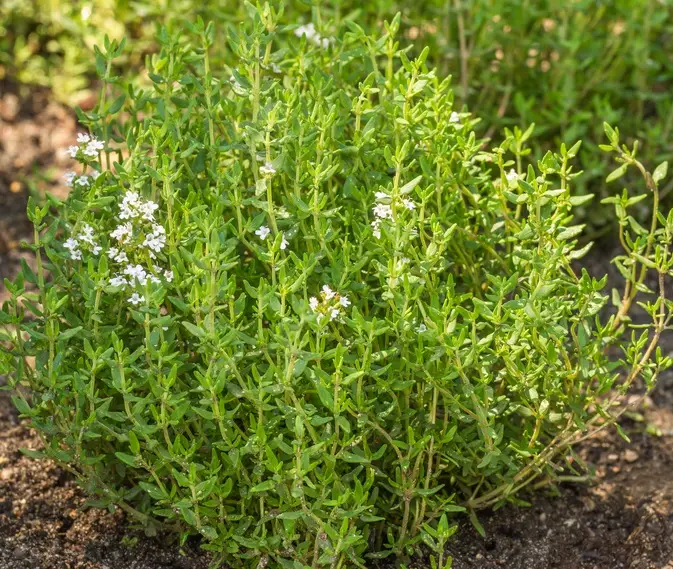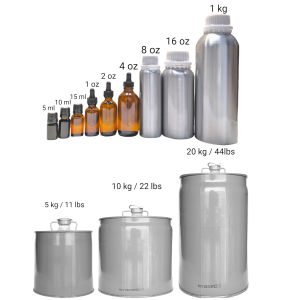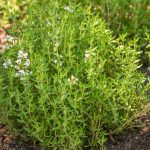Description: Organic Thyme chemotype Linalool Essential Oil is high in Linalool. This Thyme is extracted from the fresh or partly dried flowering tops and leaves of the plant by water or steam distillation. Red Thyme essential oil has strong antiseptic, antibacterial, antispasmodic, and hypertensive properties, all of which make it useful in treating a wide variety of illnesses and infections. It is also one of the strongest natural antioxidants and has been used in medical practices to boost the immune system, promote joint and muscle health, and inspire respiratory wellness. Thyme is a common herb and is generally used as a condiment or spice. Besides that, thyme is also used in herbal and domestic medicines. The health benefits of thyme essential oil can be attributed to its properties as an antispasmodic, antirheumatic, antiseptic, bactericidal, bechic, cardiac, carminative, cicatrisant, diuretic, emenagogue, expectorant, hypertensive, insecticide, stimulant, tonic and vermifuge substance.
Thyme oil is extracted from the fresh or partly dried flowering tops and leaves of the plant by water or steam distillation.
Botanical name: Thymus Zygis
Plant Part: Resin
Extraction Method: Steam Distilled
Odor and Color: A pale yellow liquid with a characteristic, pleasant odor and a pungent, persistent taste
Country of Origin: Spain
Type: Organic
Linalool by GC: 65%; typical range 55 – 75%
Main Constituents: Organic Thyme ct Linalool Essential Oil, as the name suggests, is rich in linalool, which is the dominant chemical constituent in this particular chemotype of thyme essential oil. Linalool is a naturally occurring terpene alcohol that contributes to the oil’s unique aroma and potential therapeutic properties. However, Thyme ct Linalool Essential Oil may also contain other minor constituents that add to its overall aromatic profile and benefits. The main constituents found in Thyme ct Linalool Essential Oil are Linalool, α-Terpinene, α-Pinene and β-Pinene, Camphene, 1,8-Cineole (Eucalyptol), Terpinen-4-ol.
Common Uses: The chemotype “ct Linalool” indicates that the predominant chemical constituent in this particular thyme essential oil is linalool, which sets it apart from other chemotypes of thyme essential oil, such as Thyme ct Thymol or Thyme ct Carvacrol. Each chemotype has its unique fragrance profile and therapeutic benefits.
Here are some characteristics and potential benefits of Thyme ct Linalool Essential Oil:
Aromatic Profile: Organic Thyme ct Linalool has a more gentle and mild aroma compared to other chemotypes of thyme essential oil. It retains some of the characteristic herbaceous notes of thyme, but the linalool content imparts a floral and slightly citrusy scent.
Relaxing and Calming: Linalool is known for its calming and relaxing properties, making Thyme ct Linalool Essential Oil a good choice for promoting a sense of tranquility and reducing stress and anxiety.
Antimicrobial: While Thyme ct Linalool may not have the same high antimicrobial potency as Thyme ct Thymol or Thyme ct Carvacrol, it still possesses some antimicrobial properties and can be used for mild antiseptic purposes.
Respiratory Support: Organic Thyme ct Linalool may provide some support for respiratory issues, helping to ease congestion and soothe coughs.
Aromatherapy Uses: Organic Thyme ct Linalool can be used in aromatherapy blends for relaxation, meditation, and sleep support due to its calming aroma.
Skin Care: Organic Thyme ct Linalool Essential Oil can be used in skincare products for its potential benefits in promoting healthy skin. However, like all essential oils, it should be diluted properly before topical application.
Note: Organic Thyme ct Linalool Essential Oil is not typically associated with a specific note in aromatherapy since it doesn’t follow the traditional note classification used in perfumery. Instead, it is valued for its unique aroma, which is characterized by a gentle, mild, and floral scent due to its high linalool content.
Blend Well With: Organic Thyme ct Linalool Essential Oil blends well with Lavender, Eucalyptus, Rosemary, Lemon, Tea Tree, Geranium, Peppermint, Frankincense, Cypress, Roman Chamomile, Neroli, Sandalwood, Ylang Ylang.
Contraindication: Discontinue use if skin sensitivity occurs. Avoid contact with eyes. If you are pregnant, it’s best if you consult with your physician before taking this essential oil orally. Similarly, if you are allergic, you must exercise great caution.
This statement has not been evaluated by the Food and Drug Administration. This product is not intended to diagnose, treat, cure, or prevent any disease.
For large quantities please contact us via our phone number or through the Contact Us page.
Like us on Facebook










Reviews
There are no reviews yet